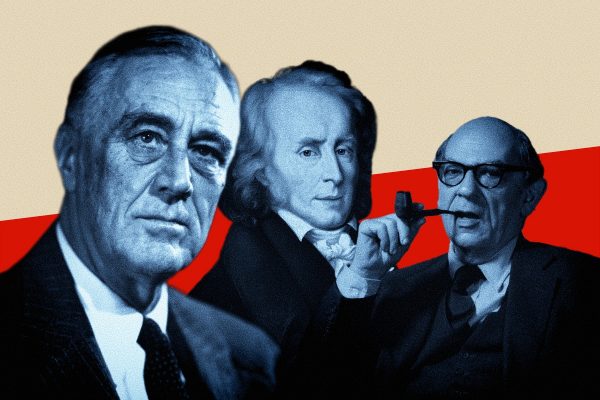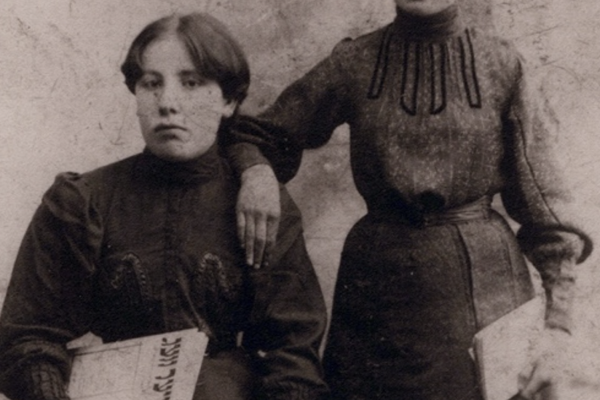The ballot paper phrased the question with eloquent bluntness: “Should Scotland be an independent country?” Beneath were two blank boxes for the only two viable answers: “Yes” or “No.” On September 18, some 85 percent of eligible Scots turned out to answer one way or the other—the largest showing for any election held in the United Kingdom since 1918. This referendum was, as many said later, a victory for democracy, and a measure of just how engaged and invested a modern electorate can be when asked a big enough question. But the end result did not exactly settle the matter.
In the preceding months and weeks, the Yes/No debate had seemed to grow and spread beyond party politics, and even beyond standard constitutional positions. Non-nationalists were moved to mobilize for independence and non-unionists to defend the 307-year partnership between Scotland and England.
Scots on both sides broadly agreed that their own semi-devolved parliament and government should have greater legal and fiscal authority over the country’s affairs. But the population seemed divided between the Yes campaign’s promises of an economically secure state and the No camp’s dire warnings over taxes, tariffs, currency issues, and cross-border pension schemes. In Edinburgh before the vote, the Scottish playwright David Greig advanced the view that his countrymen and women were polling their own “internal electorate.” “Most days I am 60 percent or 70 percent Yes,” Greig said. “But some days I’m only about 45 percent.”
When it finally came to referendum day, the latter figure took on talismanic import, as 55 percent of Scots voted No, and the union was narrowly preserved. Within hours of the final count, dejected members of the minority were referring to themselves as “the 45 percent.” Overnight, the hopeful, broad-based, grassroots independence movement gave rise to the righteous wronged. Some alleged electoral fraud, others accused the United Kingdom’s political establishment of colluding with business interests, tabloid newspapers, and the state-owned BBC to deceive the Scottish people about the risks of independence and the rewards of rejecting it.
Just two days earlier, former U.K. Prime Minister Gordon Brown had made a highly publicized last-minute “vow” to his fellow Scots on behalf of the so-called Better Together campaign—an uneasy pro-union alliance between his own Labour party and the current British coalition government of Conservatives (or “Tories”) and Liberal-Democrats. Scotland would be granted further devolutionary powers, Brown promised, if only its citizens elected to remain within the United Kingdom. But barely two days after the vote went their way, Brown was imploring the Tory prime minister David Cameron to honor that promise and asking Scots to sign a petition that would hold him to it. Cameron, for his part, had already moved on to the question of whether Scottish members of the Westminster Parliament should now be allowed to vote on English issues.
He and his chancellor of the Exchequer, George Osborne, soon announced plans to repeal the Human Rights Act—which protects journalistic sources, restrains police authority, and guarantees freedom of expression—and make further austerity cuts affecting low-income families and the unemployed. These policies were seemingly designed to make Yes voters say, “We told you so.”
Few Scots expect much of Cameron or his party, which has been widely despised north of the border since the 1980s prime of Conservative godhead Margaret Thatcher, who presided over the systematic dismantling of local heavy industry and resulting decline of working-class communities. (The nominally center-left Lib-Dems are now held in almost as much contempt for joining with the Tories after the general election of 2010.)
But even after the quasi-Thatcherite New Labour project of Brown and Tony Blair, many still put a residual trust in the party that had always championed those struggling industries and communities, that created the British welfare state, and that first advocated home rule for Scotland almost a hundred years ago. Labour’s role in this referendum seemed to expend the last of that trust, and Greig described Brown’s vow in particular as “one of the lowest points of British democracy I’ve ever witnessed: a hasty pledge that no one believed, even those who made it.”
At the What Next for Scotland conference in Edinburgh on October 6, political scientist Ailsa Henderson effectively confirmed this with public opinion data, showing that the Tories’ late promise of unspecified new powers for the Scottish Parliament influenced the outcome only “a little bit.” Meanwhile, her colleague Professor John Curtice drew a clear link between social deprivation and support for independence. Simply put, the poorest Scots voted Yes, and the wealthiest voted No. First Minister Alex Salmond, leader of the Scottish National Party (SNP), had apparently failed to sway the middle classes with his somewhat vague formal plan for an independent liberal democracy that would keep the British pound and the British monarchy while breaking from the British single market.
Salmond duly resigned the day after the referendum, leaving deputy Nicola Sturgeon his successor. The SNP has since taken on more than 40,000 new members to become the third-largest party in the United Kingdom, while the top two have fallen to Westminster infighting over exactly what additional devolutionary powers Scotland should now be allowed, with Labour somehow offering even less than the Tories. Sturgeon, for her part, is pushing for the “Devo Max” option, which would give the Scottish government full authority over all matters except defense and foreign affairs. She apparently sees this as the most direct route to complete independence but has not entirely ruled out a second referendum.
Those new members, she has said, “are impatient for change.” More likable than Salmond ever was, with a demonstrable commitment to social justice, Sturgeon also knows that some of that change will have to come from within, and perhaps require a sort of return to the country’s past values, which bordered on the socialist and prized solidarity above all. That was lacking in a referendum that barely brought half of the country together. If 45 percent of Scots voted to leave the United Kingdom and its right-leaning neoliberal rule, a quieter and more cautious majority may have looked to their own interest and found themselves conservative with a small “c.”
Editors' Note: Read Stephen Phelan's full report on Scottish independence before the referendum.








